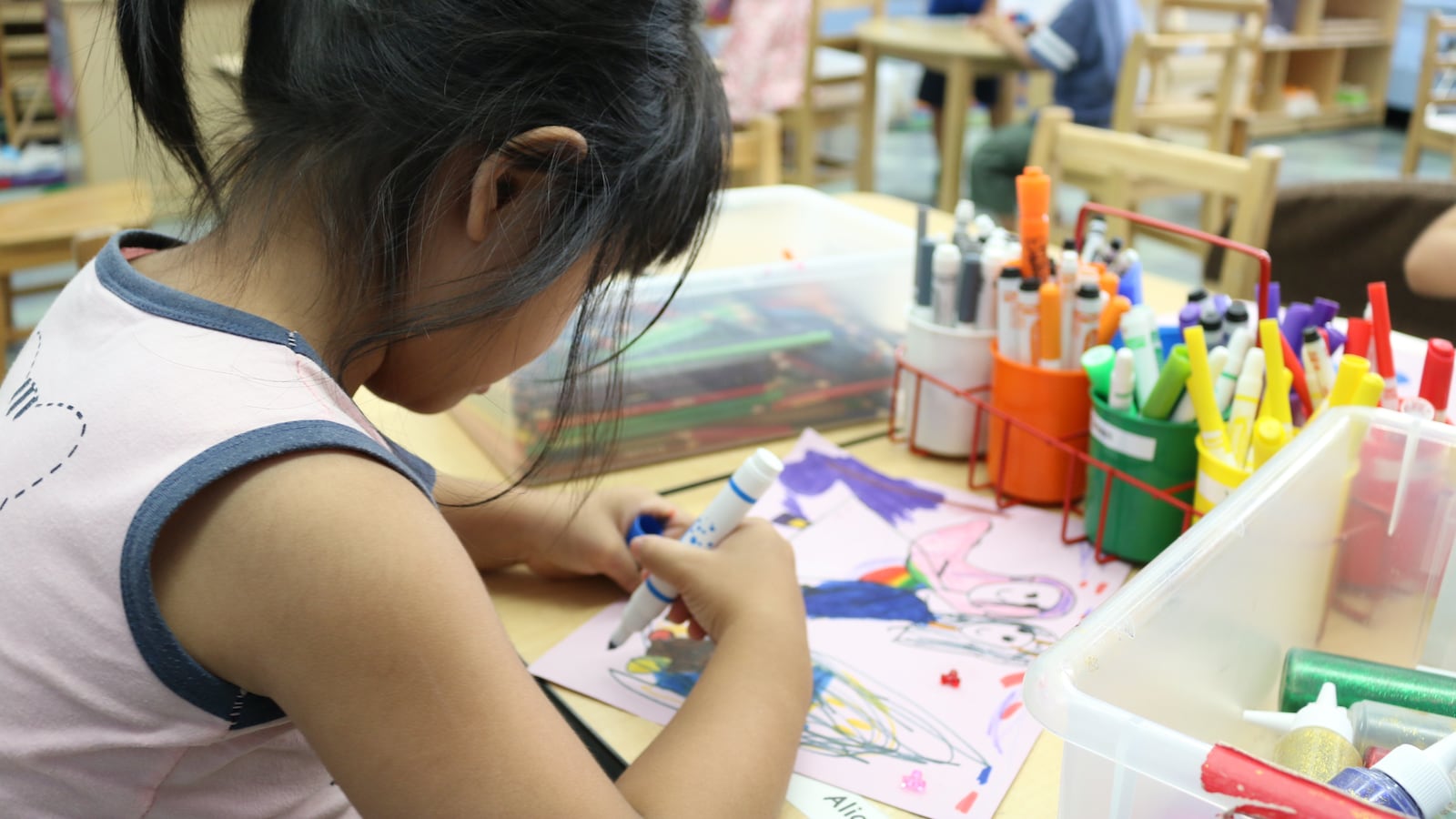Five years after launching the nation’s largest expansion of pre-kindergarten, New York City Mayor Bill de Blasio can now boast about test score benefits for children who participated.
Students who attended Pre-K for All programs in the 2014-15 school year outperformed their peers who were not on this year’s New York state exams, according to city officials.
They said pass rates were 2.8 percentage points higher in English and 1.1 percentage points higher in math for students who participated than for students who did not. They also said gaps in test scores between students of different races and ethnicities were smaller among those who attended pre-K that year.
[Related: NYC test scores inch upward as state releases assessment results]
The results offer one of the first signs of whether the city’s investment in free, universal preschool for 4-year-olds is paying off with improved academic performance. (There is already evidence that the program has led to healthier children.) They also bolster one of the mayor’s central talking points on the presidential campaign trail, where he often touts his early childhood education record.
“We’re able to say way more definitively than ever that pre-K for all is working, it’s reaching deep into our communities,” de Blasio said at a press conference Thursday at P.S. 69 in the Bronx, which he visited on the initiative’s first day of classes in 2014. “It’s changing children’s lives, achieving something that could not be done without that early start.”
The results do not necessarily mean that the program changed individual students’ outcomes. It’s possible that the students who enrolled in the first year of Pre-K For All — when an additional 33,000 children were served — were different from those who did not in crucial ways. City officials acknowledged, for example, that they did not control for factors such as family income.
Dale Farran, who has studied pre-K programs elsewhere and is a professor emerita at Vanderbilt University, said it’s impossible to draw conclusions about the impact of pre-K without a more specific analysis.
“I don’t want to be a Debbie Downer here, I really don’t,” she said. “I think that people make their commitment to pre-K out of values. And if they’re really doing it because they want to see, longer term, better outcomes, then they have to design better studies to see if that’s true.”
Plus, test scores offer only one limited measure of students’ academic skills, a point that Chancellor Richard Carranza emphasized Thursday. “Test scores are but one of many, many measures that we look at,” he said.
Noting that policy initiatives in later grades also influence student test scores, Steven Barnett, a co-director of the National Institute for Early Education Research, cautioned against drawing too many conclusions from the results. Still, he said the city’s scores offered an encouraging sign — and that anything else could have undermined the national push that is leading to more children every year being enrolled in free preschool.
“From San Antonio to Seattle, you have positive impacts there as well. But New York City is the biggest, at the biggest scale, and so that counts more,” Barnett said. “If test scores had gone down and achievement gaps had gone up, then people would be making a lot of noise about how universal pre-K at scale doesn’t work.”

